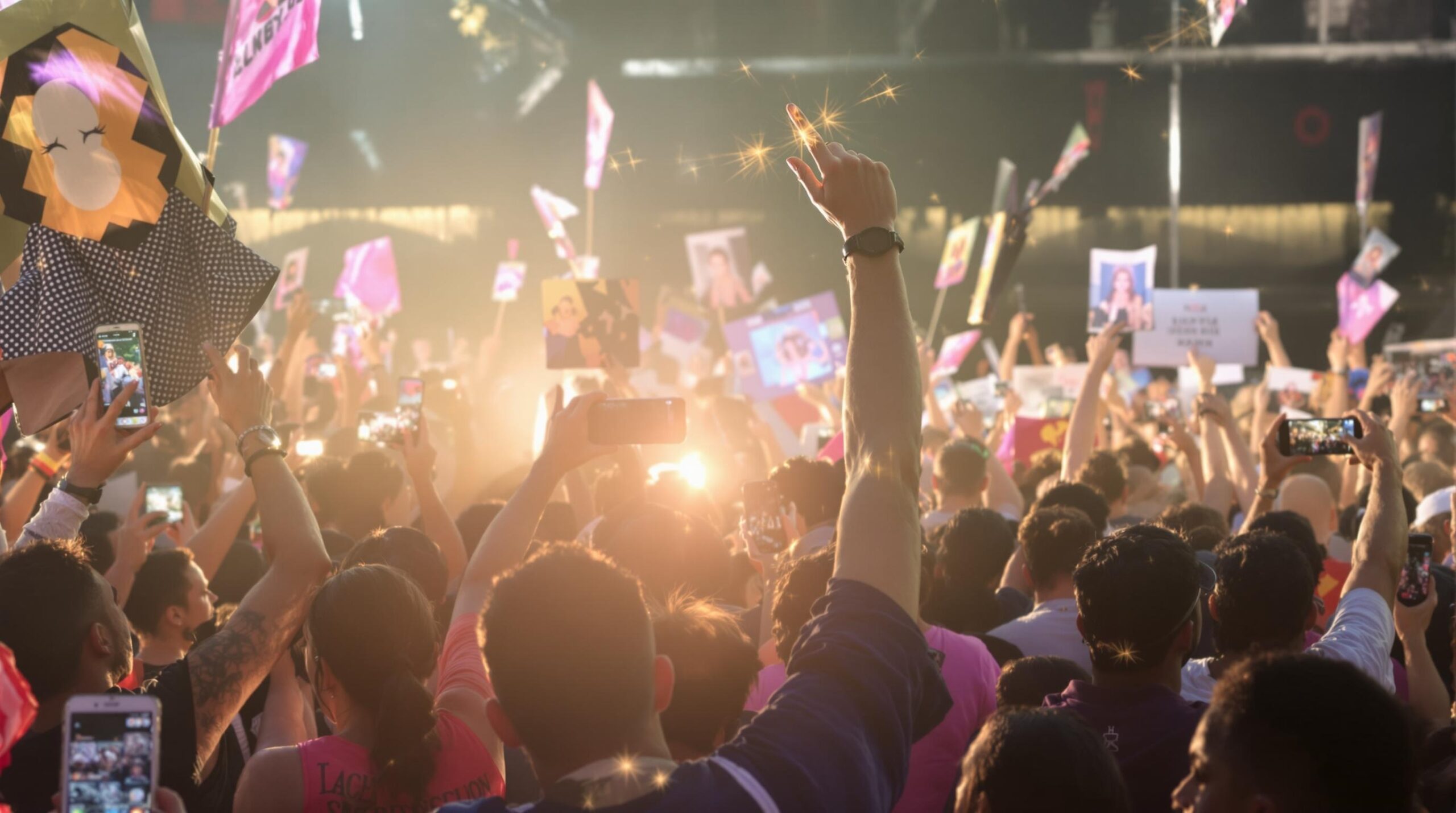In recent years, the advent and proliferation of online platforms have dramatically transformed the landscape of fan communities. 2025 marks a significant milestone in this ongoing evolution as virtual fandoms become pivotal players in reshaping celebrity culture. This shift is not merely an extension of traditional fan clubs into the digital realm; rather, it represents a fundamental change in how fans interact with each other and the celebrities they admire. The rise of these digital communities has altered the dynamics of fandom, creating opportunities and challenges for celebrities, fans, and the entertainment industry.
The Emergence of Virtual Fandoms
Virtual fandoms have emerged as a powerful force due to the widespread accessibility of the internet and social media platforms. Fans are no longer limited by geographical boundaries when interacting with like-minded individuals. Instead, they can form communities around their shared interests, regardless of location. Platforms such as Twitter, TikTok, Discord, and specialized fan forums have become the breeding grounds for these communities, offering spaces where fans can congregate to discuss, analyze, and celebrate their favorite celebrities and cultural phenomena.
These virtual spaces allow for the constant flow of information and fan-generated content. Whether it’s fan art, memes, or fan fiction, the ease of sharing and creating content online has fueled the growth of these communities. This immediacy creates an environment that offers inclusivity and collaboration, foundational to the new dynamics of fandom engagement. This evolution represents a shift from passive consumption of content to active participation, further solidifying the role of fans not just as consumers but as active contributors and influencers.
Interaction and Accessibility
The once clearly defined barrier between celebrity and fan has significantly diminished with the rise of virtual fandoms. Social media platforms offer celebrities a direct channel to communicate with their fans, breaking down the barriers that once existed in traditional celebrity-fan relationships. This level of access allows fans to feel a closer, more personal connection to their idols, fostering a sense of belongingness and community.
From live Q&A sessions to surprise video drops, celebrities leverage social media to enhance their interaction with fans. Virtual fandoms enable fans to feel like they are part of a larger conversation, inspiring increased engagement and loyalty. This direct interaction has made fans more active in their support, as they feel a sense of ownership and involvement in their idol’s career and success. The feedback loop created by such interactions helps celebrities tailor their content and approach in more personalized ways, making them more relatable and accessible.
The Power of Collective Influence
Virtual fandoms are redefining the power dynamics within celebrity culture through their collective influence. A notable example of this influence is how fans use their platforms to support or criticize public figures, sway public opinion, and affect market dynamics. Fans have mobilized online to chart songs via streaming, organize trending campaigns, and even substantially impact sales figures or box office results. These activities highlight virtual fandoms’ tangible power in shaping an artist’s success.
This collective influence extends beyond entertainment outcomes into activism, often called “fan activism.” Fans rally around social issues, using their fandom as a platform to effect change. This is notably observable when fandoms unite to support charitable causes aligned with their celebrity’s values. Such movements illuminate the power of virtual fandoms and emphasize their ability to achieve social and cultural impact.
Challenges Faced by Virtual Fandoms
While the rise of virtual fandoms brings numerous benefits, it also presents challenges that stakeholders must navigate. One of the predominant issues is the spread of misinformation in online fan communities. Rumors and false information can proliferate quickly, leading to miscommunication and sometimes conflict within fandoms or between fans and celebrities.
Moreover, the intense nature of online fandom interactions can lead to toxic environments. Online discourse’s anonymous and often amplifying nature can foster bullying, harassment, and unhealthy competition among fans. These issues can escalate into public disputes that can damage the reputation of both fandoms and celebrities.
The Role of Technology and Innovation
The evolution of virtual fandoms is closely tied to technological advancements and innovations. Live streaming, virtual reality, and augmented reality experiences have expanded how fans engage with their favorite celebrities. Virtual concerts, meet-and-greets, and fan conventions are becoming more prevalent as technology continues to improve, providing fans with immersive experiences that were once unattainable.
These technologies enhance interaction and allow for the creation of new content formats and experiences. Celebrities and their teams embrace these tools to expand their reach and deepen connections with their audiences. By harnessing these innovations, they can offer unique fan experiences that drive engagement and cultivate loyalty.
Conclusion: The Future of Virtual Fandoms
Looking ahead, the impact of virtual fandoms on celebrity culture is set to increase. As technology evolves and platforms become more integrated into daily life, fans’ and celebrities’ connections will grow more substantial and nuanced. Social media’s role as a bridge between the public and the personal continues to expand, enabling a more interactive and participatory culture around fandom.
In closing, virtual fandoms are changing how we define and engage with celebrity culture. They represent a new paradigm where fans are empowered to consume, influence, and shape the narratives they are passionate about. These transformations highlight the democratization of media, as fans wield unprecedented power and influence—marking an era of celebrity culture that is more dynamic, participative, and interconnected than ever.


